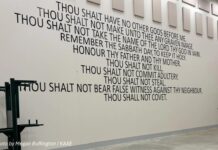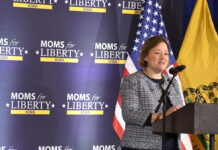Last Friday, the U.S. Supreme Court denied the emergency request for an injunction pending appeal regarding an application filed by a Nevada church.
The denial of the emergency relief pending appeal is NOT a denial on the merits of the case. The decision to deny the emergency request with no written opinion by the majority is not a ruling on the merits. All that can be determined from this is that a majority did not grant the extraordinary emergency relief at this stage of litigation.
Requesting the Supreme Court to intervene in an ongoing case before the lower Court of Appeals rules on the merits is an extraordinary request. The standard for obtaining such relief is higher than that required for an injunction. Moreover, such a motion for relief requests the Supreme Court to interfere with the normal process of allowing the lowers courts to rule on the merits of a case.
Just as a denial of a request to review a case (petition for certiorari) is not a ruling on the merits and has no precedential value (even if the denial includes dissents), so a denial of a petition for an injunction pending appeal has no precedential value.
In Calvary Chapel Dayton Valley v. Steve Sisolak, Governor of Nevada, SCOTUS denied a request from the Nevada church to block enforcement of state restrictions on attendance at religious services on the same terms that other facilities in the state, including casinos, are allowed to hold gatherings during the Coronavirus.
The governor’s orders have limited in-person church attendance to 50 people, despite the capacity of the building, as a part of the state’s Coronavirus restrictions. However, other businesses such as casinos, restaurants, movie theaters, and gyms may permit up to 50 percent capacity. This means that casinos can grant access to hundreds of patrons at a time.
Calvary Chapel Dayton Valley, a church located in rural Nevada, requested the ability to hold services for 90 people, or approximately 50 percent of its fire code capacity.
Governor Steve Sisolak has extended the Phase 2 restrictions “due to the trends in COVID-19 infection rates, the time needed for expanded contact tracing to identify trends, and to see the impacts of the Governor’s new face covering directive.” He added that he would “not hesitate to take any action necessary to protect the public and prevent exceeding our hospital capacity, including reinstituting previous restrictions.”
In his dissent, Alito, joined by Thomas and Kavanaugh, wrote that the “Constitution guarantees the free exercise of religion.”
“It says nothing about the freedom to play craps or blackjack, to feed tokens into a slot machine, or to engage in any other game of chance. A public health emergency does not give Governors and other public officials carte blanche to disregard the Constitution for as long as the medical problem persists,” said Alito.
Kavanaugh wrote that “a State may not impose strict limits on places of worship and looser limits on restaurants, bars, casinos, and gyms, at least without sufficient justification for the differential treatment of religion.”
In his own dissent, Gorsuch wrote, “This is a simple case. Under the Governor’s edict, a 10-screen ‘multiplex’ may host 500 moviegoers at any time. In Nevada, it seems, it is better to be in entertainment than religion. Maybe that is nothing new. But the First Amendment prohibits such obvious discrimination against the exercise of religion. The world we inhabit today, with a pandemic upon us, poses unusual challenges. But there is no world in which the Constitution permits Nevada to favor Caesars Palace over Calvary Chapel.”
Liberty Counsel Founder and Chairman Mat Staver said, “The denial of emergency relief for the Nevada church does nothing to settle the matter and does not affect other churches. It is not a ruling on the merits. The litigation will continue until the lower courts issue final rulings, at which time the Supreme Court will be able to consider one or more of these cases on the merits.”
















